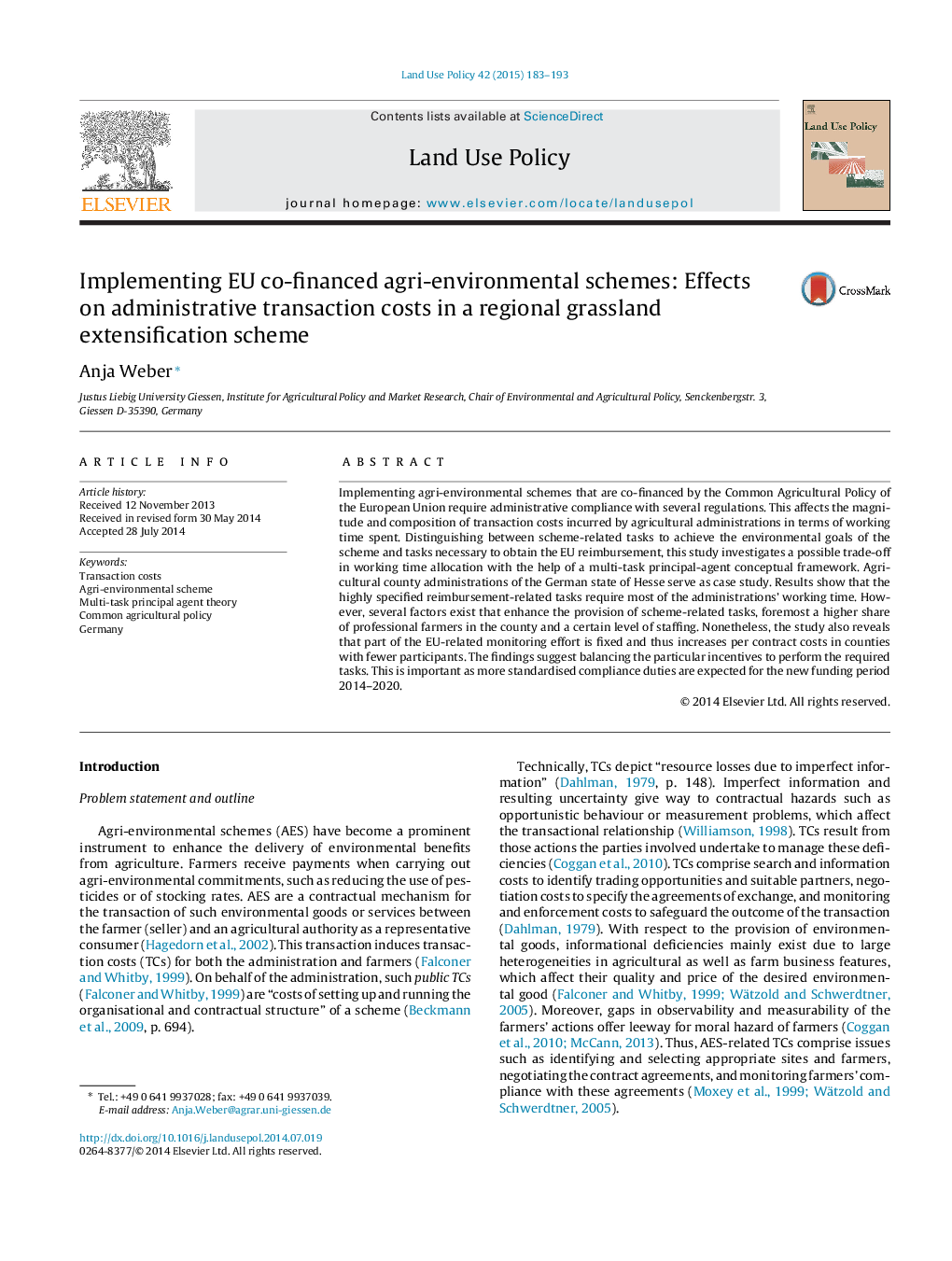| Article ID | Journal | Published Year | Pages | File Type |
|---|---|---|---|---|
| 6548376 | Land Use Policy | 2015 | 11 Pages |
Abstract
Implementing agri-environmental schemes that are co-financed by the Common Agricultural Policy of the European Union require administrative compliance with several regulations. This affects the magnitude and composition of transaction costs incurred by agricultural administrations in terms of working time spent. Distinguishing between scheme-related tasks to achieve the environmental goals of the scheme and tasks necessary to obtain the EU reimbursement, this study investigates a possible trade-off in working time allocation with the help of a multi-task principal-agent conceptual framework. Agricultural county administrations of the German state of Hesse serve as case study. Results show that the highly specified reimbursement-related tasks require most of the administrations' working time. However, several factors exist that enhance the provision of scheme-related tasks, foremost a higher share of professional farmers in the county and a certain level of staffing. Nonetheless, the study also reveals that part of the EU-related monitoring effort is fixed and thus increases per contract costs in counties with fewer participants. The findings suggest balancing the particular incentives to perform the required tasks. This is important as more standardised compliance duties are expected for the new funding period 2014-2020.
Related Topics
Life Sciences
Agricultural and Biological Sciences
Forestry
Authors
Anja Weber,
